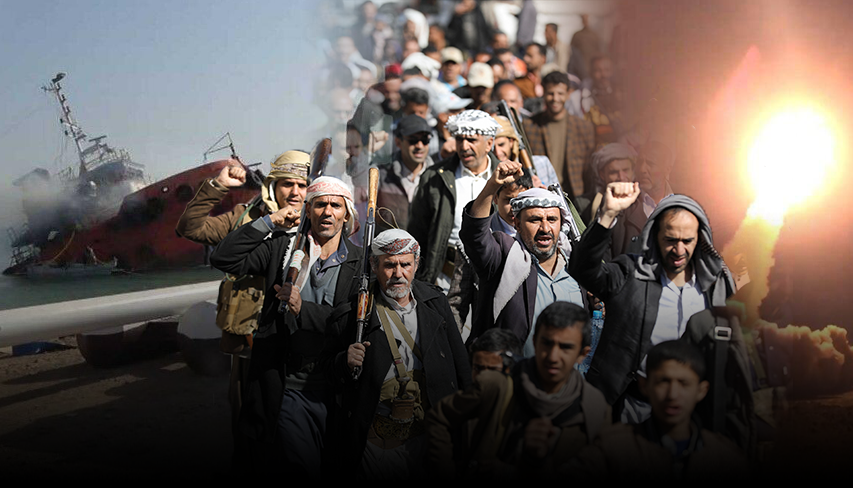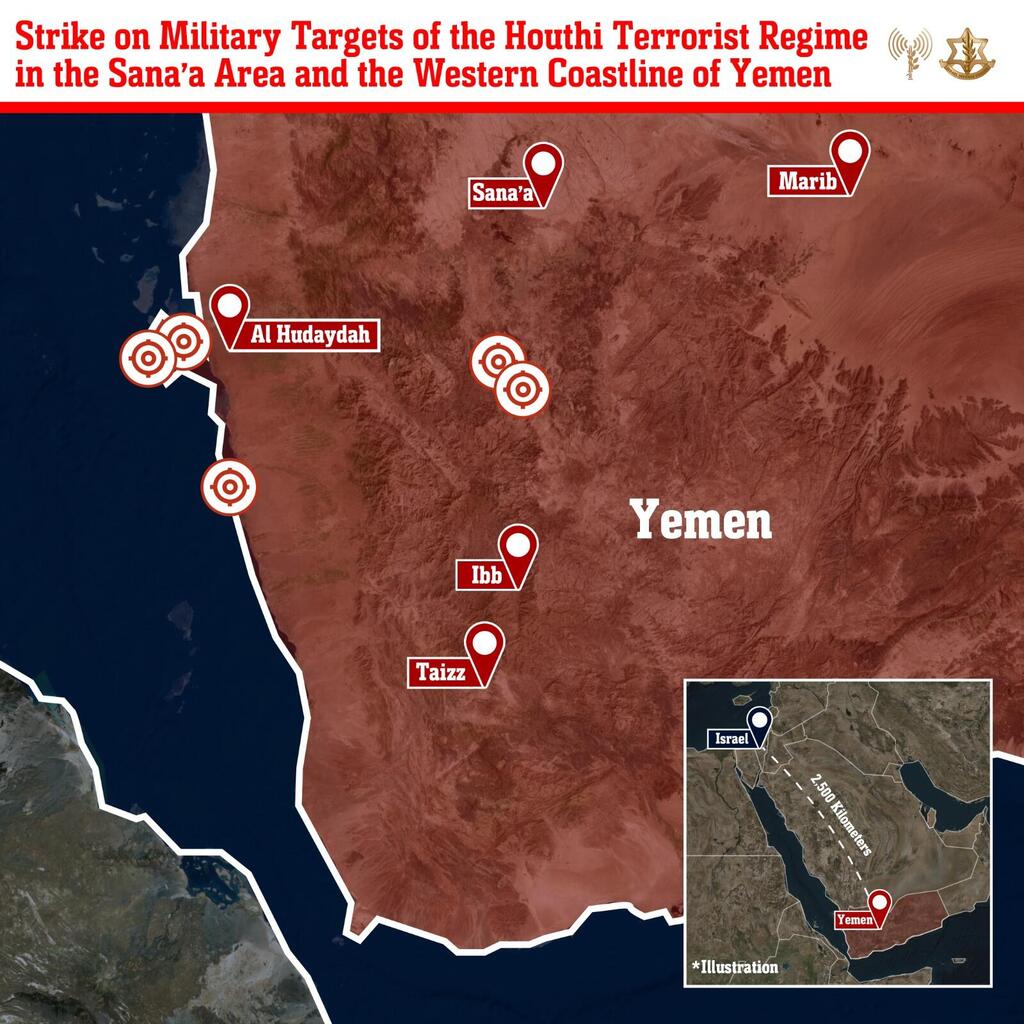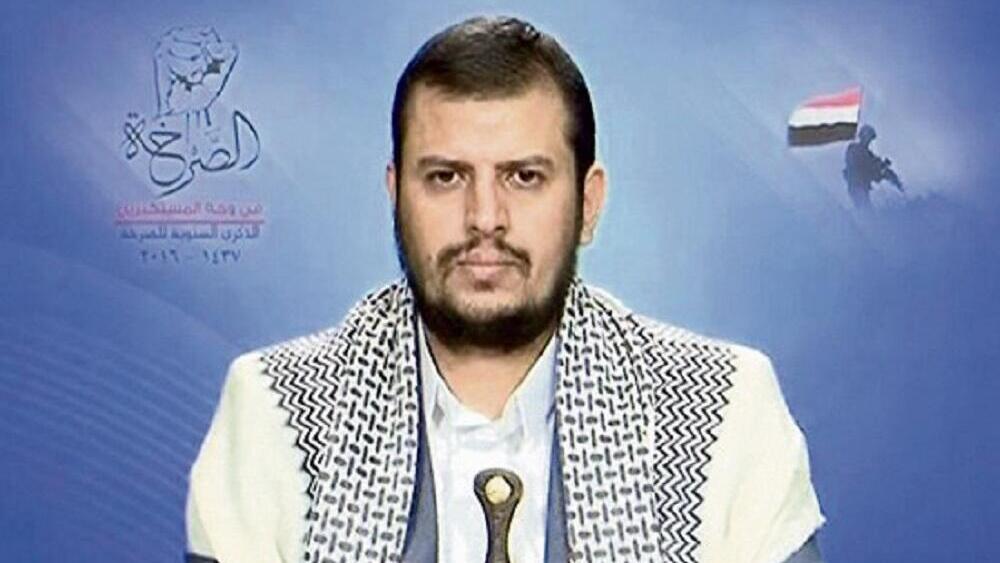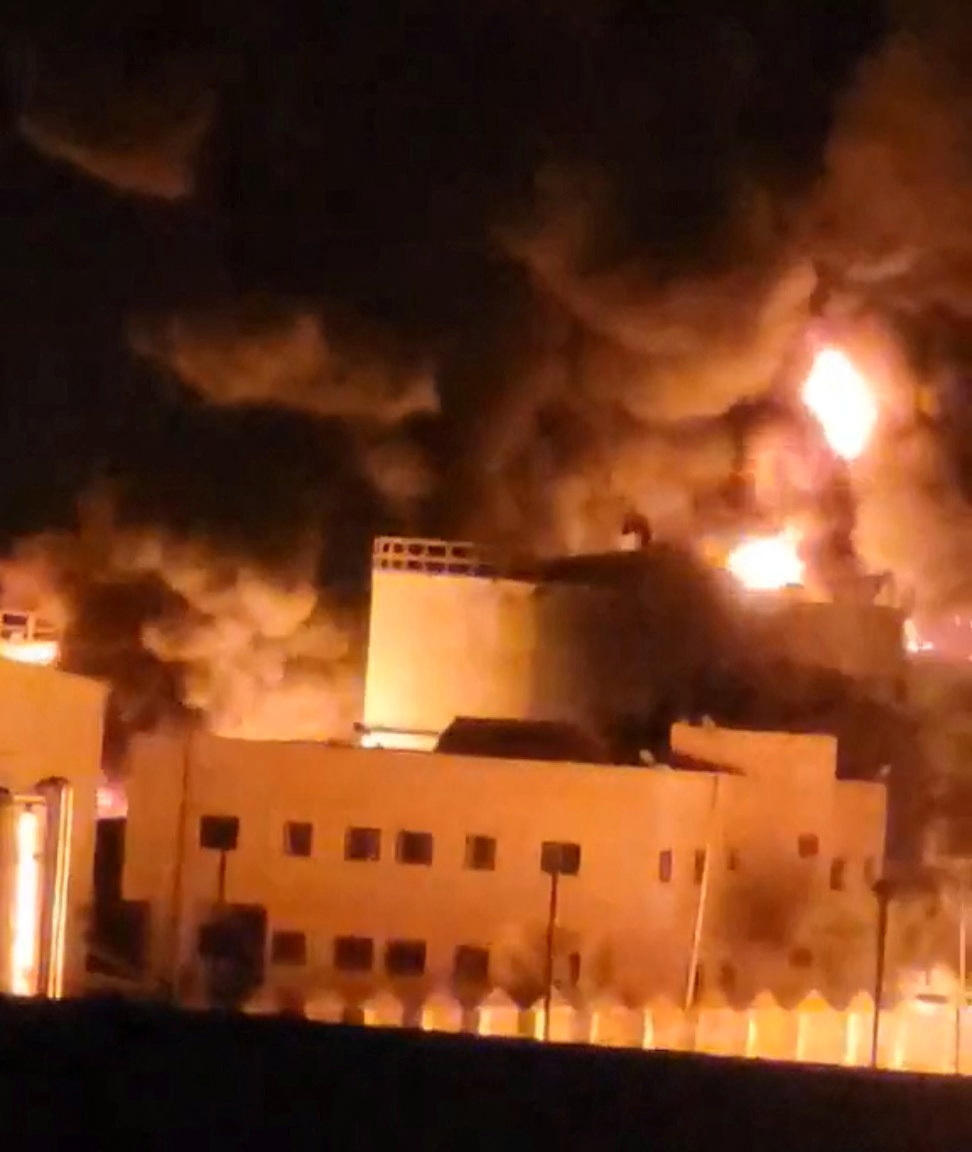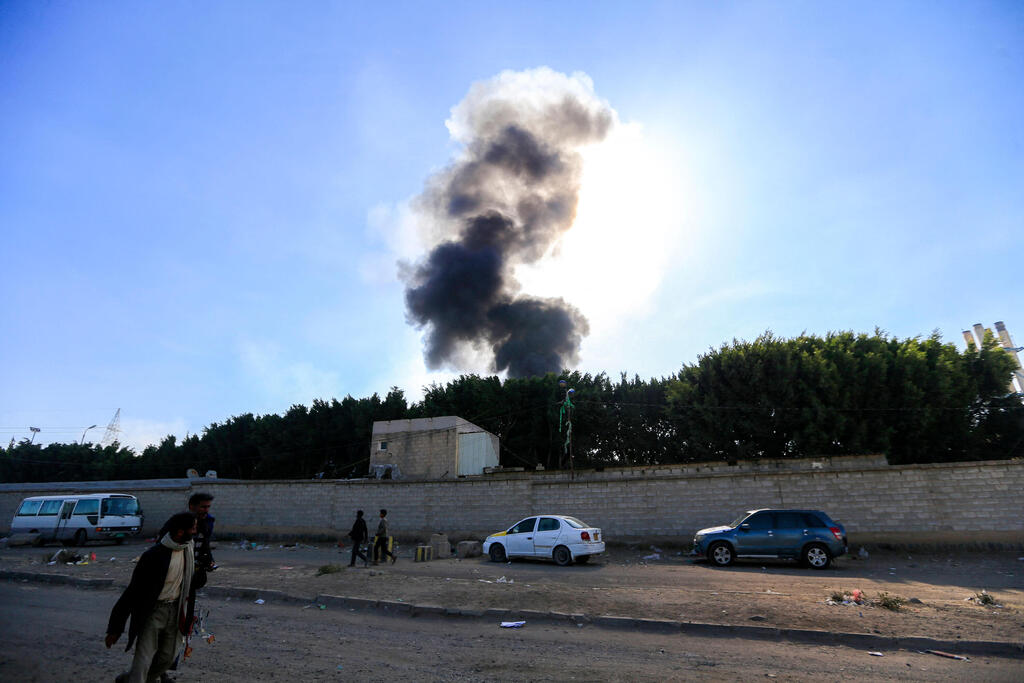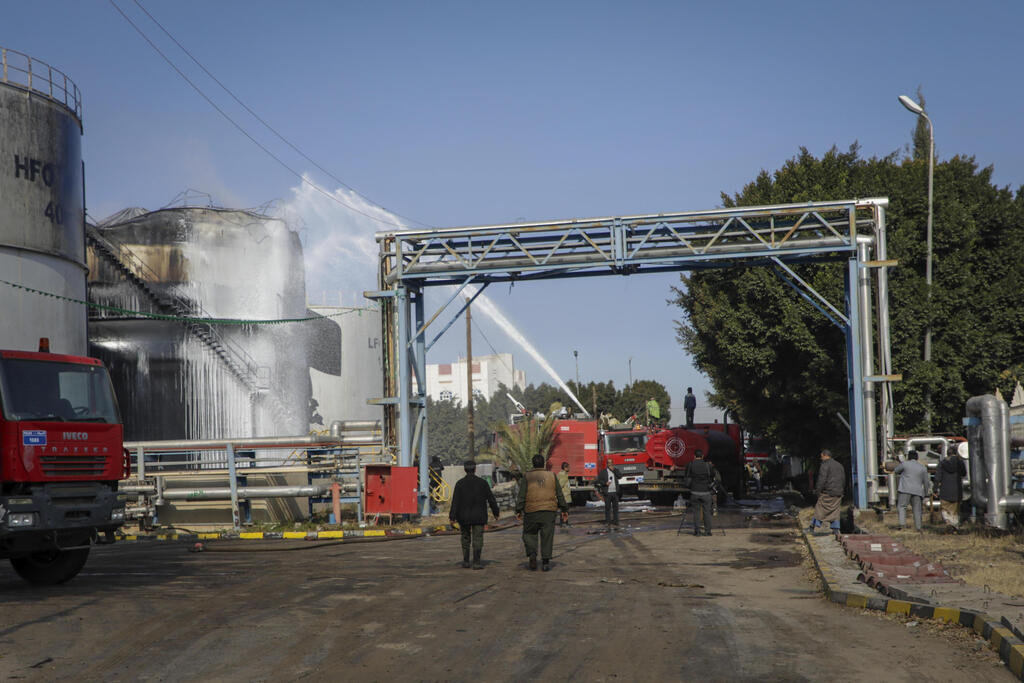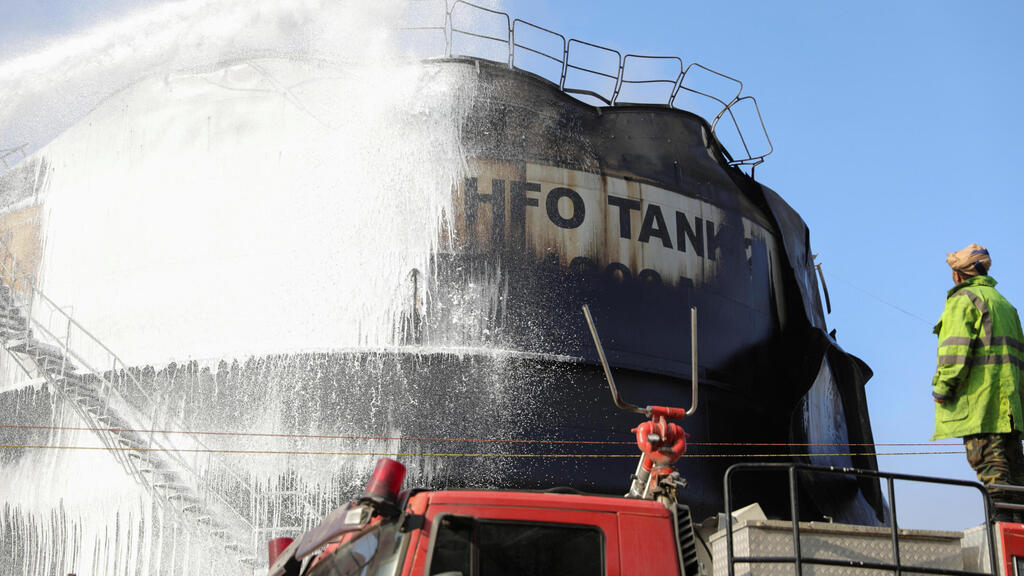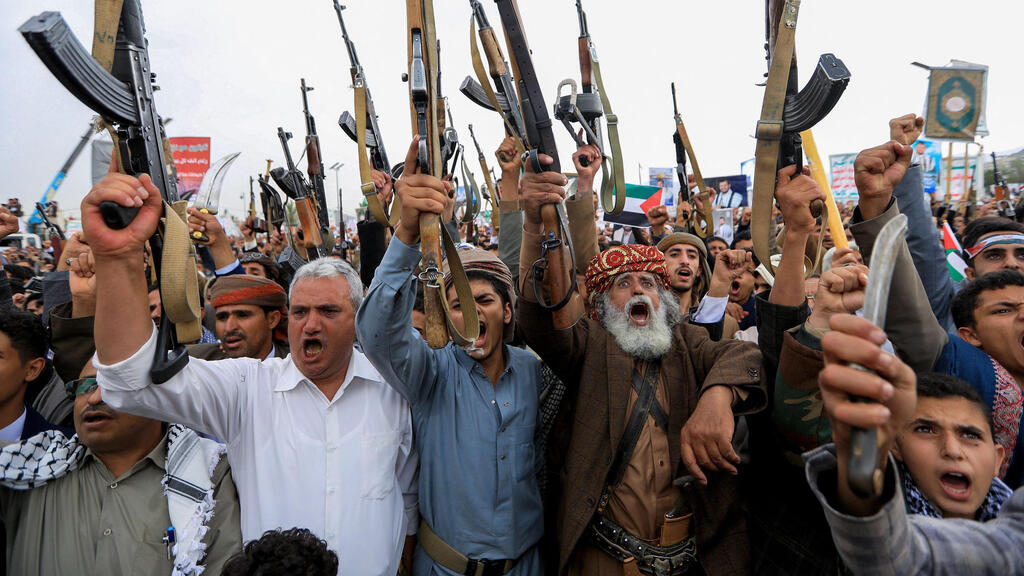When Israeli Air Force fighter jets were already in the air last night to strike 2,000 km (1243 miles) from Israel and end weeks of restraint in response to repeated Houthi attacks, it was another reminder that the war in this country has not disappeared. Meanwhile, millions of residents in central Israel were awakened in the middle of the night by sirens following the launch of a missile from Yemen.
The interception failed, and its warhead exploded on a school in the Ramat Ef’al neighborhood of Ramat Gan. An hour later, the Israeli Air Force bombed a series of strategic Houthi targets, including their stronghold in Sana’a for the first time.
Strikes on Houthi terrorist regime targets in Yemen
(Video: IDF Spokesperson's Unit)
However, an indication of the difficulty in inflicting significant damage from such a great distance came later that afternoon, when a drone launched from Yemen was intercepted off the coast of Tel Aviv.
In recent weeks, since the cease-fire with Hezbollah, which was battered in Lebanon and the subsequent collapse of Bashar Assad's regime in Syria, the Houthis have essentially become one of Iran's last remaining operational proxies. In fact, they’ve even intensified their attacks against Israel.
Wednesday’s operation marked the third IDF strike against the Houthis, two and a half months after the previous one. As before, Israel claimed significant strategic damage was inflicted, but the Houthi attacks persist.
The IDF said that the new strikes aimed to disable Houthi-controlled ports, targeting eight tugboats. However, sources at the central port in Hodeidah countered that they still have additional vessels capable of towing ships.
Houthi leader Abdul-Malik al-Houthi vowed in a televised speech on Thursday that the group's actions would continue as part of what it calls the "Gaza support campaign."
"They keep escalating, and we don't care about their aggression," said al-Houthi, who leads a terrorist organization seemingly indifferent to the suffering of his people.
His terror group, which withstood years of Saudi bombings that resulted in mass civilian casualties, remains defiant. Al-Houthi declared that the strikes wouldn't affect the "escalation under phase five of support for Gaza."
Al-Houthi also claimed that his group launched 1,147 ballistic missiles, cruise missiles or drones, many of which targeted commercial ships, significantly disrupting a crucial trade route for the global economy in the Red Sea throughout the war.
Attacks on ships have also effectively shuttered Eilat's port, with a dramatic reduction in the number of vessels arriving and some workers being furloughed. According to the IDF, the Houthis have fired over 200 missiles and 170 drones at Israel since October 7, 2023, most of which were intercepted or failed to penetrate Israeli territory.
Ynet's security analyst Ron Ben-Yishai assessed that the operation is unlikely to deter the Houthis or impair their ability and intent to continue launching missiles and UAVs at Israel. Worse, he noted, they’ll continue targeting global commercial and military shipping in the Red Sea, causing significant economic disruption to energy transport – a campaign they've been waging for over a year.
His prediction was reinforced Thursday afternoon when the IDF announced it had intercepted a drone off the coast of Tel Aviv without triggering alarms, in accordance with policy. It’s believed the UAV was launched from Yemen.
Ben-Yishai explained that the Houthis, a Shiite jihadist-ethnic group, are determined to demonstrate that, unlike Hezbollah, Hamas and the Iranians, they remain steadfast, fighting to support Gaza, which they perceive as under attack by Israel.
Alongside Shiite militias in Iraq, the Houthis likely anticipate that a cease-fire in Gaza is imminent as part of an emerging hostage deal. He added that the difficulty in targeting them also stems from a lack of intelligence capabilities, with Israel having limited resources to allocate for intelligence gathering at Yemen's distance.
The U.S. over the past also hoped year to deter the Houthis due to the severe disruptions in the Red Sea trade route. Still, outgoing U.S. President Joe Biden's administration has avoided targeting their strategic assets as Israel has, which has previously frustrated Jerusalem.
While the Americans and British conducted numerous strikes, these were relatively limited and aimed at intercepting missiles and drones about to be launched. Washington remains concerned about significant escalation that could ignite a regional war. Even the U.S. strike in Sana’a on Monday was effectively aimed at empty Houthi headquarters.
Will the Yemeni people turn on the terror group?
Still, the Israeli Air Force’s strikes were extensive in scope despite the significant challenges with a source in Sana’a reporting that they caused panic in the city. For the first time, power plants in the Yemeni capital were hit and thousands of families were reportedly left without electricity.
"People woke up in shock. The capital of Yemen woke up in shock. I went to my neighbors, whose buildings depend on government electricity and they had no power," the source said. He noted that while more expensive private generators were more commonly used in the past, access to government-supplied electricity had recently expanded, with about 50% of residents relying on it.
"We're afraid of what’s to come because it’s the first time power stations have been targeted," the source added. "We’ve gotten used to the fact that hills and military sites are always attacked, whether empty or containing soldiers and equipment but this time it was directed at civilian-essential facilities.”
“This could turn the public against the Sana’a regime, which has plunged the people into chaos and war with Israel. Many fear a repeat of the scenarios in Syria and Lebanon," he continued, referencing the fall of Assad's regime and the fighting against Hezbollah.
"However," the source stressed, "some people don't care about the incidents – they say this is an ideological and religious war with Israel and that it’s an honor." Many Houthi supporters in the capital gather every Friday for massive rallies as part of their "Gaza support campaign."
In an interview with Reuters, a resident and Houthi supporter said he wasn’t afraid. "We've been fighting their tails for more than 10 years," he said, referring to Saudi Arabia and the UAE. "So now, when we're fighting face-to-face with the Zionists and Americans? We're not scared at all.
Get the Ynetnews app on your smartphone: Google Play: https://bit.ly/4eJ37pE | Apple App Store: https://bit.ly/3ZL7iNv
Threats against Houthi leaders
Over 60 bombs were used in the operation according to the military, hitting "Houthi military targets along the western coastline and deep within Yemen."
The first wave of strikes began along Yemen's coastline at 3:15 a.m., followed by a second volley at 4:30 a.m. near Sana’a. The operation involved 14 fighter jets targeting ports at Ras Issa, Hodeidah and Salif, as well as fuel and oil tanks and a power station in Sana’a.
Defense Minister Israel Katz threatened to target Houthi leaders themselves, with Prime Minister Benjamin Netanyahu adding: "This morning, the Air Force attacked strategic targets of the Houthis in the port of Hodeidah and deep into Yemen. We did this in response to repeated Houthi attacks against civilian targets in Israel. Last night they attacked a school in Ramat Gan."
"After Hamas, Hezbollah and the Assad regime in Syria, the Houthis are almost the last arm of Iran's axis of evil. They are finding out, and will find out, the hard way that whoever harms Israel – will pay a very heavy price," he added.






